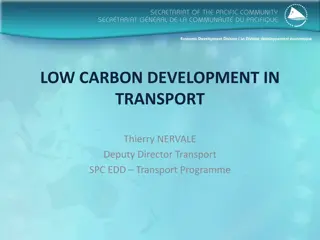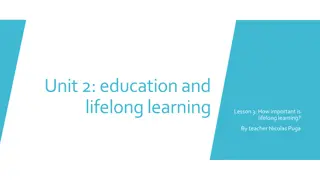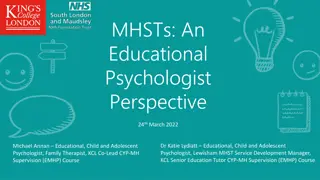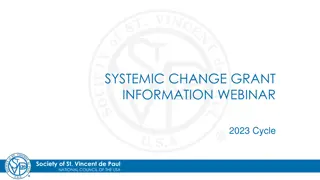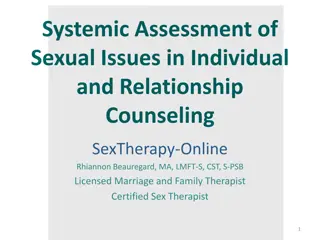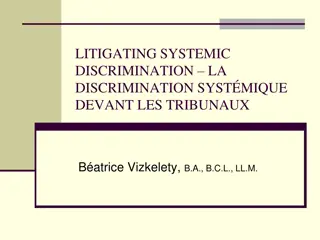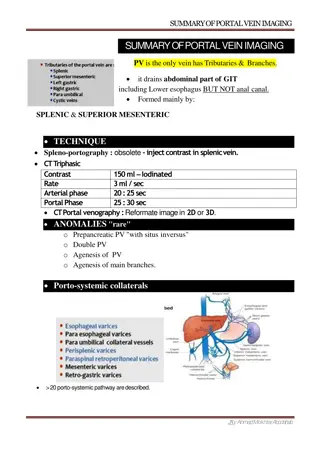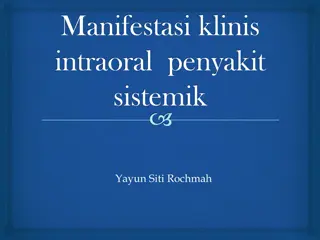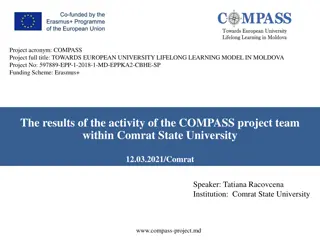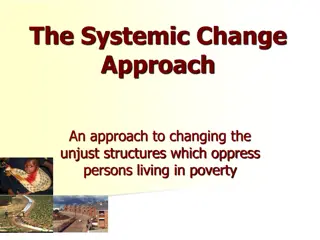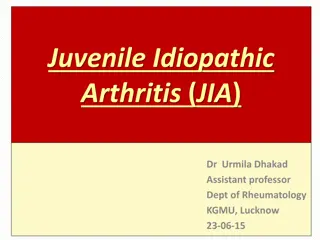Towards Sustainable Assessment for Lifelong Learning and Systemic Learning
Assessment is integral to everyday learning, not just formal education. It involves questioning and making judgments, whether in tasting soup or raising a child. This presentation delves into the meaning of quality education, assessment, and their role in curriculum, educational reforms, and sustainable assessment for lifelong and systemic learning. The focus is on developing assessment practices that support continuous learning and contribute to societal advancement.
Download Presentation

Please find below an Image/Link to download the presentation.
The content on the website is provided AS IS for your information and personal use only. It may not be sold, licensed, or shared on other websites without obtaining consent from the author. Download presentation by click this link. If you encounter any issues during the download, it is possible that the publisher has removed the file from their server.
E N D
Presentation Transcript
ASSESSMENT AND THE QUESTION OF ASSESSMENT AND THE QUESTION OF QUALITY: QUALITY: TOWARDS SUSTAINABLE ASSESSMENT TOWARDS SUSTAINABLE ASSESSMENT FOR LIFELONG LEARNING AND SYSTEMIC FOR LIFELONG LEARNING AND SYSTEMIC LEARNING LEARNING PETER RULE CENTRE FOR HIGHER AND ADULT EDUCATION STELLENBOSCH UNIVERSITY, SOUTH AFRICA
INTRODUCTION: ASSESSMENT IS HOW WE LEARN AND IMPROVE We usually think of assessment as part of formal education and exams BUT Assessment as part of everyday learning: - Tasting the soup - Test-driving the car - Fixing the roof - Raising a child We assess by questioning and making judgements: - How does the soup taste? Is the flavour right? What should I add? - Does the car accelerate and brake properly? - Does the roof keep the rain out? - Does the child develop good values and behaviours?
How can we develop and sustain assessment for lifelong learning and systemic learning?
PRESENTATION OUTLINE 1. What does quality education mean? 2. What does quality assessment mean? 3. Where does assessment fit into the curriculum? 4. What do quality education and quality assessment mean in the context of educational reforms? 5. What is sustainable assessment and how do we do it? 6. How can we use assessment for systemic learning? 7. What s on the African horizon for quality education and assessment? 8. Concluding remarks
1. WHAT DOES QUALITY EDUCATION MEAN? 1. WHAT DOES QUALITY EDUCATION MEAN? Enables people to develop their attributes and skills; Thereby enables them to contribute to society; Helps people to fulfil their potential;
QUALITY AND QUANTITY IN EDUCATION Quantity is the number of beneficiaries served by the education process. Quality on the other hand is a measure of how the education delivered is fit for purpose. It has to do with the relevance and adequacy of the knowledge, skills, attitudes and values that learners acquire during the course of being educated. Fit for purpose Peter A Okebukola, 2016, p. 36. Relevant Adequate
QUALITY EDUCATION AND THE SUSTAINABLE DEVELOPMENT GOALS Education that is: Relevant Goal 4: Quality education for all Equal Inclusive Promotes readiness (for school, workplace) Ensure inclusive and equitable quality education and promote lifelong learning opportunities for all Promotes sustainable development Adequately resourced Taught by qualified teachers
2. WHAT DOES QUALITY ASSESSMENT MEAN? 2. WHAT DOES QUALITY ASSESSMENT MEAN? Assessment is about making judgements regarding the quality of something. Quality assessment is: - valid (assesses what it intends to assess), - reliable (will achieve the same or comparable results for different cohorts), - sustainable (contributes to lifelong learning), - critical (promotes questioning and critical thinking), - fair (does not disadvantage a particular group)
QUALITY ASSESSMENT HAS A SPECIAL RELATIONSHIP TO LEARNING Type of assessment Relation to learning Diagnostic assessment, e.g. placement test Assessment before learning: Assesses learner s level to inform decisions about future learning Summative assessment, e.g. exams Assessment of learning: Assesses the quality of learning that has taken place 1. Where does assessment fit into the curriculum? Formative assessment, e.g. projects, assignments, group tasks, classwork. Assessment for learning: Provides feedback to learners in order to improve their learning Continuous assessment, e.g. portfolios Assessment of and for learning: Provides a basis for continuing feedback and development as well as an overall record of achievement.
3. WHERE DOES ASSESSMENT FIT INTO THE CURRICULUM? 3. WHERE DOES ASSESSMENT FIT INTO THE CURRICULUM?
THE WASHBACK EFFECT OF THE ASSESSED CURRICULUM
4. WHAT DO QUALITY EDUCATION AND QUALITY WHAT DO QUALITY EDUCATION AND QUALITY ASSESSMENT MEAN IN THE CONTEXT OF EDUCATIONAL ASSESSMENT MEAN IN THE CONTEXT OF EDUCATIONAL REFORMS? REFORMS? . Outcomes-based education Modularisation Africanisation and decolonisation Digitalization and the Global Village
OUTCOMES-BASED EDUCATION Advantages Limitations Outcomes make explicit what needs to be assessed Does not recognise unanticipated outcomes The ends are known from the beginning Process neglected in favour of product Provides direction for teaching and learning Questions of content and knowledge might lack depth and systematicity Teacher has scope to adopt appropriate methods Depends on resourcefulnessof teacher
MODULARISATION Advantages Limitations Manageable units Assessment of cross-cutting aspects Options for learners Coherence of whole
AFRICANISATION AND DECOLONISATION Advantages Challenges Can enhance relevance for learners Linking local and global Recovery of African Indigenous Knowledge and tradition Linking African pasts and futures African languages and culture as resources for learning Recognising Africans as global citizens with a unique contribution in the African Century
5. WHAT IS SUSTAINABLE ASSESSMENT AND HOW DO WE WHAT IS SUSTAINABLE ASSESSMENT AND HOW DO WE DO IT? DO IT? Sustainable development has been defined as development that meets the needs of the present without compromising the ability of future generations to meet their own needs (World Commission on Environment and Development, 1987). Sustainable assessment can similarly be defined as assessment that meets the needs of the present without compromising the ability of students to meet their own future learning needs. (David Boud,
Developing capabilities for self- and peer- assessment Questioning capabilities Problem- posing How can we develop sustainable assessment? Modelling assessment Problem- solving Experiential leaning Critical reflection
SUSTAINABLE ASSESSMENT ASSESSMENT OF LEARNING: SUMMATIVE PRESENT EDUCATIONAL GOALS FUTURE LEARNING NEEDS LIFELONG LEARNING ASSESSMENT FOR LEARNING: FORMATIVE LEARNING THROUGH ASSESSMENT: CONTINUOUS
SUSTAINABLE ASSESSMENT SYSTEMIC LEARNING OF EDUCATION SYSTEM LIFELONG LEARNING OF LEARNERS
6. HOW CAN WE USE ASSESSMENT FOR SYSTEMIC LEARNING? 6. HOW CAN WE USE ASSESSMENT FOR SYSTEMIC LEARNING? We use summative assessment to assess learners overall achievement of curricular outcomes. We use formative assessment to enhance learners learning. How can we use assessment to improve the system as a whole? How can assessment enhance systemic learning?
6. HOW CAN WE USE ASSESSMENT FOR SYSTEMIC LEARNING? 6. HOW CAN WE USE ASSESSMENT FOR SYSTEMIC LEARNING? Systemic Learning: - Based on understanding of the education system as a complex adaptive system; - Unexpected emergent properties arise from the system; - System learns and develops through feedback loops
MULTIPLE LEVELS WITHIN ASSESSMENT Learner Classroom Learning can happen at each level within the system. System as a whole School Province/Region Country
IMPLICATIONS FOR CURRICULUM OFFICIAL ENACTED ASSESSED CURRICULA WORK SYSTEMIC LEARNING FURTHER STUDY CITIZENSHIP SUSTAINABLE DEV LIFELONG LEARNING ANALYSIS & REFLECTION LEARNER PERFORMANCE IN SUMMATIVE ASSESSMENT IMPLICATIONS FOR TEACHING AND LEARNING IMPLICATIONS FOR MEETING FUTURE NEEDS ANALYSIS & REFLECTION ANALYSIS & REFLECTION ANALYSIS & REFLECTION TEACHER PROF DEV RESOURCES INTERVENTIONS BEST PRACTICES EXAM SETTING MODERATION INVIGILATION MARKING STANDARDISATION IMPLICATIONS FOR ASSESSMENT SYSTEM
7. WHATS ON THE AFRICAN HORIZON FOR QUALITY 7. WHAT S ON THE AFRICAN HORIZON FOR QUALITY EDUCATION AND ASSESSMENT? EDUCATION AND ASSESSMENT? Global and local contexts of rapid change Quality education and assessment need to be proactive
Complex -ity Youth Bulge Tech change Demo- cracy Know- ledge economy Climate change
CONCLUSION Quality education leads to and depends on quality assessment but assessment on its own cannot deliver quality education. Assessment bodies and institutions have to be learning organisations in order to develop and deliver quality education and assessment: - learning about the learners (diagnostic and formative assessment); - learning about learners performance (summative assessment) - learning about the system (systemic learning) - learning about assessment (types, forms, impact, global trends) - learning about the changing horizon. This learning can help us to develop sustainable assessment: learners as lifelong assessors of their own learning






